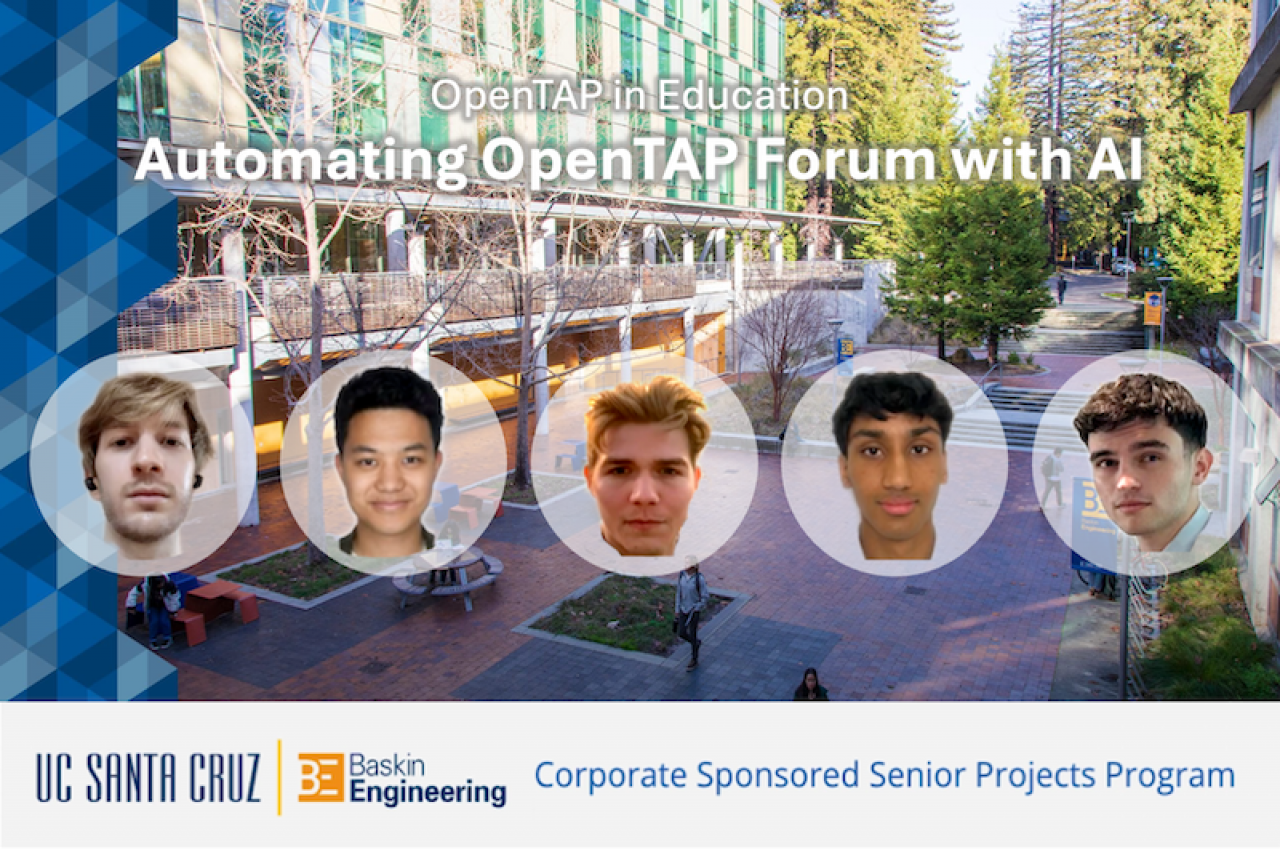Problem Statement
The OpenTAP Forum serves as a platform for OpenTAP developers, users and enthusiasts to discuss ideas, share knowledge and collaborate on projects related to test automation. The Forum is a vibrant community where individuals can ask questions, seek guidance and contribute to the growth of the OpenTAP platform.
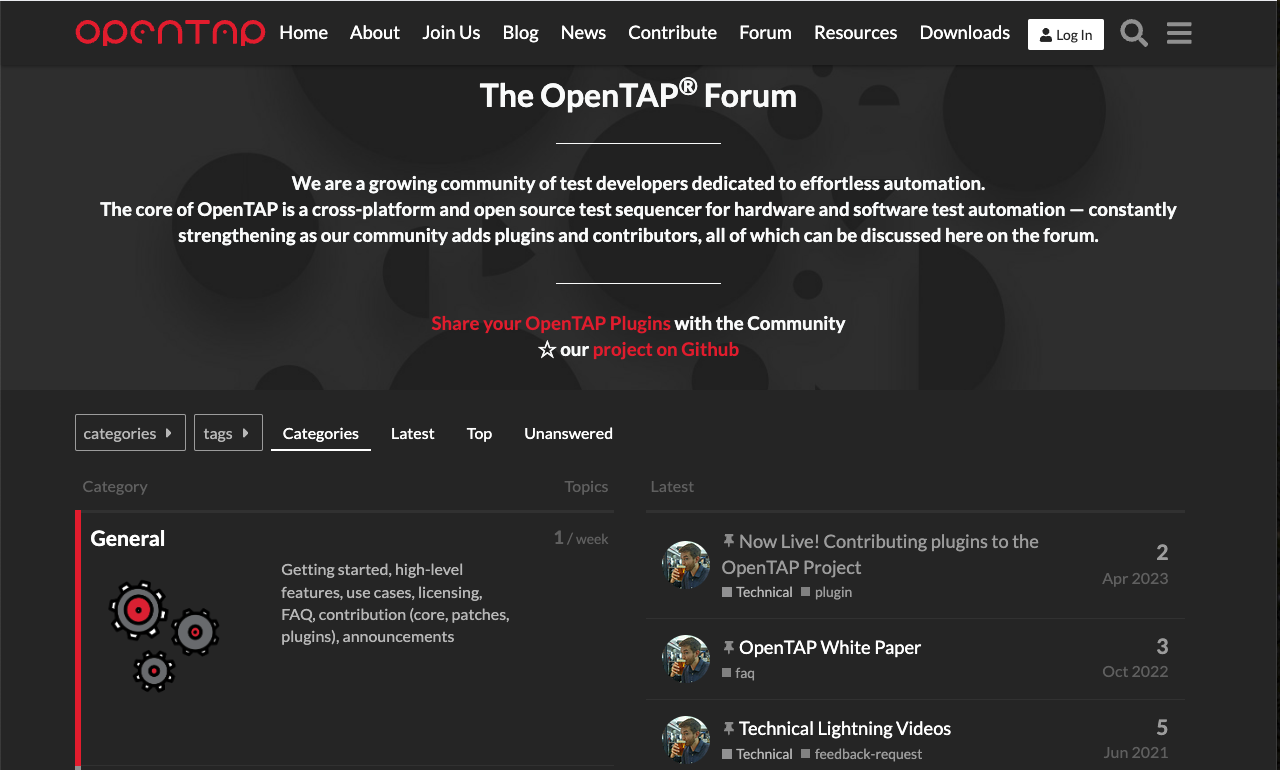
However, like many technical forums, the OpenTAP Forum is limited by availability of developers to properly address user inquiries, leading to prolonged delays. Such delays hinder the adoption and effective utilization of OpenTAP.
AI First Responder
Recognizing this challenge, the UCSC team set out to develop a solution to bridge the gap between user inquiries and timely, accurate responses. That's where their AI First Responder comes into play. Their solution is an AI-powered First Responder that aims to provide quick, accurate and relevant answers to Forum questions by leveraging advanced natural language processing techniques and a comprehensive knowledge base. The AI First Responder can understand user inquiries and generate human-like responses in a matter of seconds.
Here's an example of how the AI First Responder can address user questions. The response is not only prompt but also captures the essence of the question and provides a clear, concise answer.
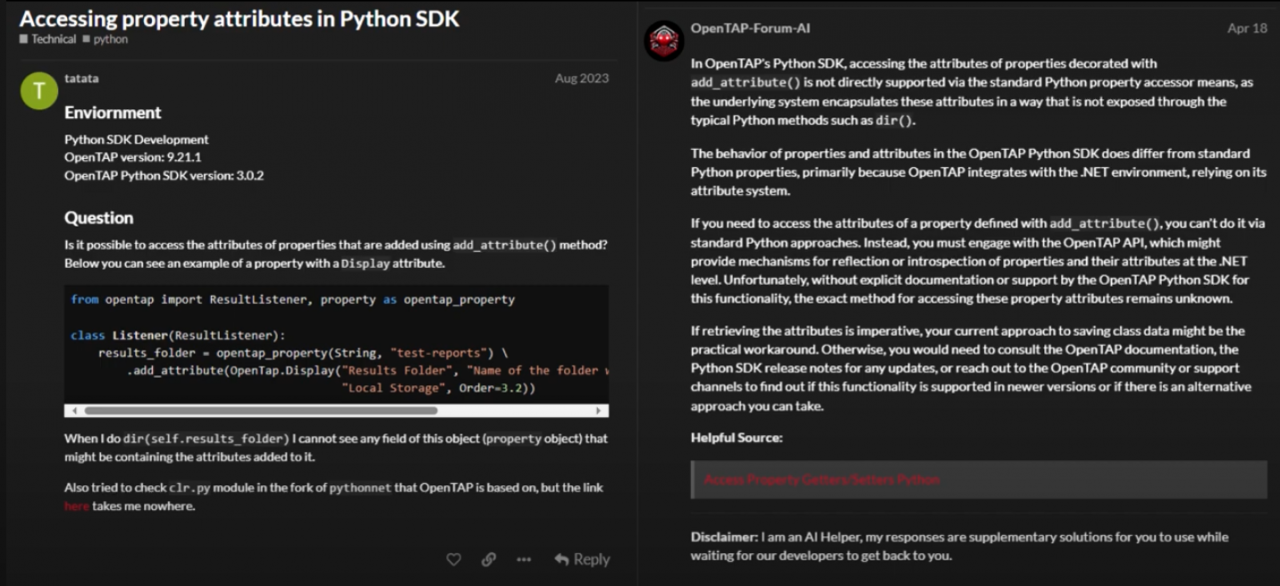
This is the level of quality and responsiveness the team strives to achieve with the AI First Responder. To keep the AI First Responder up-to-date, the team implemented a daily scanning mechanism. This scanner continuously monitors various data sources such as the OpenTAP Forum documentation and relevant websites to identify and incorporate new information into the AI knowledge base by staying current with the latest discussions and developments. The AI First Responder can provide the most accurate and timely responses.
To guarantee quick and accurate responses, the UCSC students developed an evaluation system. An integrated web evaluation system assesses the quality and relevance of the AI-generated responses before they're posted on the Forum. This helps maintain a high standard of accuracy and usefulness. Additionally the web hook system allows for seamless integration with the OpenTAP Forum, enabling real-time delivery of AI-generated responses.
Implementation
To bring the AI First Responder to life, the students leverage several cutting-edge Azure utilities:

Azure AI Search to enable fast and efficient retrieval of relevant information from an extensive knowledge
Azure App Service to provide a reliable and scalable platform for deploying a solution ensuring seamless accessibility for users
Azure Open AI, which powers a natural language understanding and generation capabilities of the system
RAG – Retrieval Augmentation Generator
The UCSC team implemented a Retrieval-Augmented Generator (RAG). The RAG system provides the power of information retrieval and language generation to produce responses that are not only accurate but also contextually appropriate by considering the context of each user inquiry. Staying up to date, ensuring quick and accurate responses and maintaining relevance form the foundation of the AI.
RAG is a novel approach that combines information retrieval and language generation techniques to produce highlight relevant and accurate responses. RAG works by retrieving a set of relevant data from a large knowledge base based on the user question. This data is then passed to a language model which generates a response by combining the information from the retrieved data with its own learned knowledge. The retrieval step helps to narrow down the vast amount of information available to the most relevant pieces, while the generation step allows the model to synthesize a coherent and natural-sounding response.
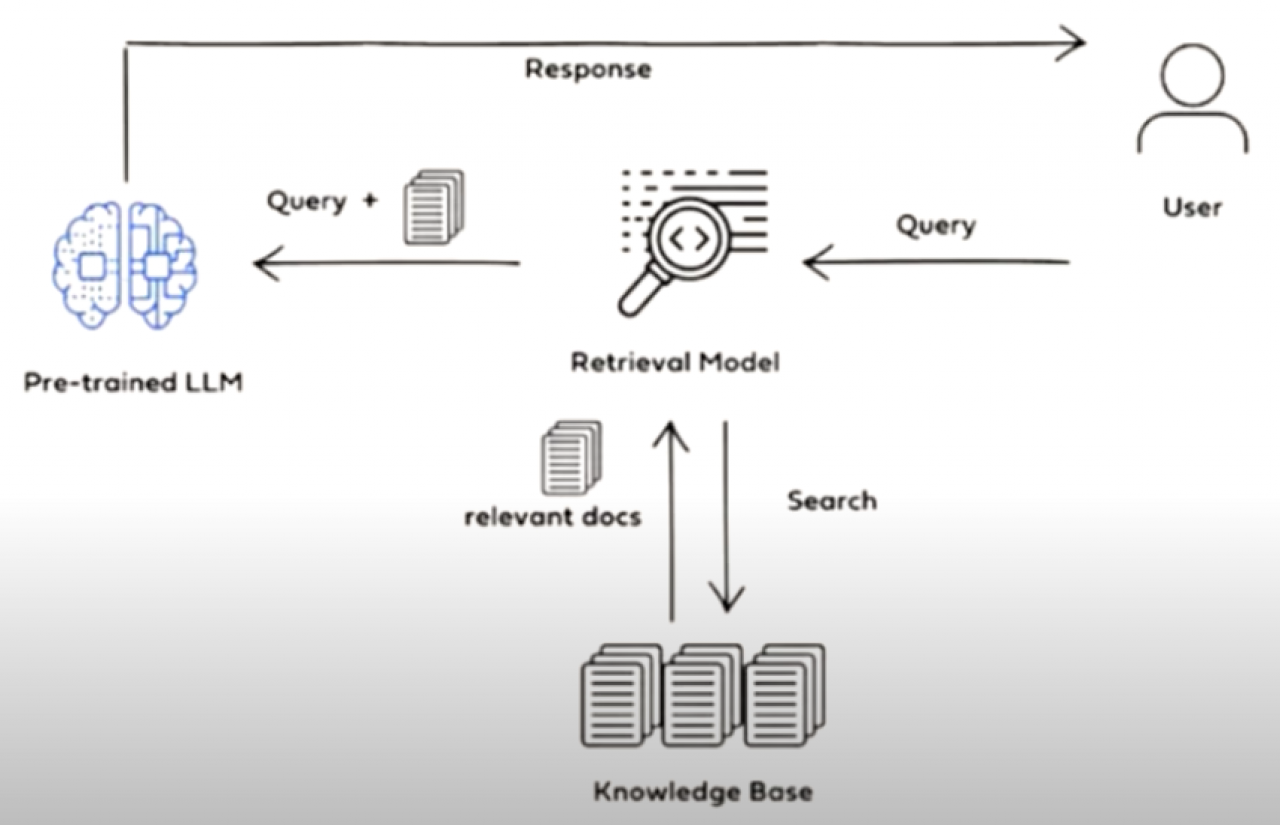
This approach has several advantages over purely retrieval-based or purely generative models. First, by retrieving relevant documents, RAG can produce responses that are grounded in factual information and are less likely to hallucinate or make up answers. Second, by using a powerful language model for generation, RAG can produce responses that are more fluent, nuanced and contextually appropriate than those produced by traditional retrieval-based systems.
System Configuration
To make the AI First Responder user-friendly and adaptable, the team developed a system configuration web app that allows administrators to customize and fine tune system behavior. The configuration app provides a centralized interface for managing settings and controlling AI interaction. The team also created a chat playground where users can engage with the AI First Responder in a controlled environment to test its capabilities and provide valuable feedback for continuous improvement. Additionally, the analytics dashboard offers insights into system performance, user interactions and key metrics, enabling data-driven decision-making and optimization.
Architecture
The scanners continuously feed data into a knowledge base which is then indexed and made searchable through Azure AI Search. When a user posts a question on the OpenTAP Forum, the AI First Responder is triggered by a web hook that leverages the RAG system to retrieve relevant information from the knowledge base, generate an appropriate response, and post it back to the Forum.
The configuration app and analytics dashboard provide the necessary tools for management and monitoring.
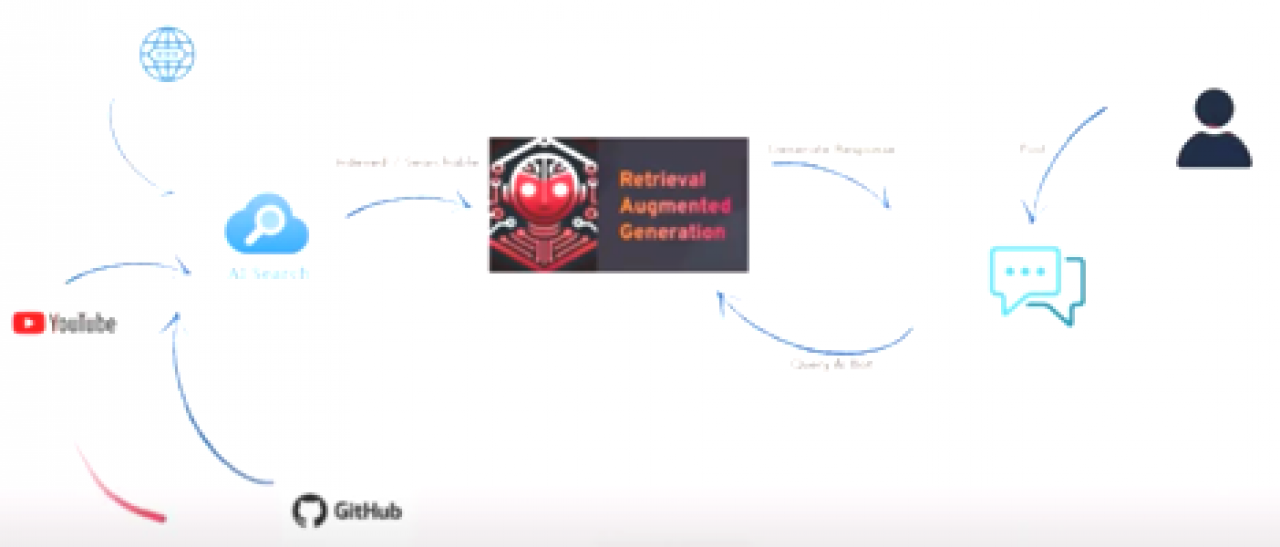
Project Video
Project Team Members
The project team members were seniors at UCSC studying computer engineering.
Click on the student images to view their Linked-In profiles.
Acknowledgements
The student team would like to thank for following Keysight staffers for their support:
